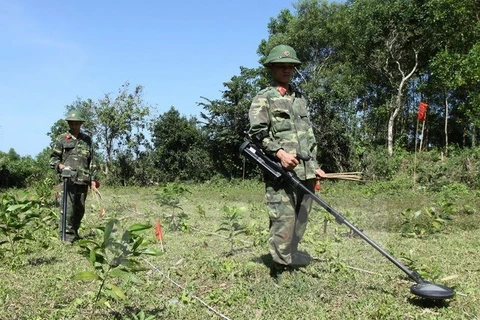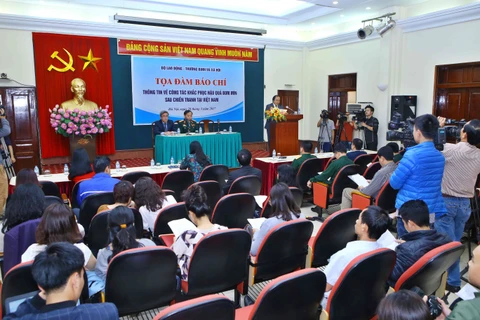Hanoi (VNA) – Top priority should be given to creating new livelihood for victims of war-era unexploded ordnance (UXO) to help them return to normal life, said an official from the Ministry of Labour, Invalids and Social Affairs (MoLISA).
Addressing the MoLISA-hosted workshop on June 22 on international cooperation in support for victims of wartime UXOs in Vietnam, Doan Huu Minh from the Department of Social Assistance noted that simple livelihoods like craft, sewing and breeding should be prioritized.
In addition, Vietnam needs to continue calling for support from international organisations to meet the victims’ demand in healthcare, orthopedics and rehabilitation, Minh said.
International support is also needed in delivering consultation services and connecting the victims with local authorities who have social policies to assist those from difficult backgrounds, he stressed.
Secretary General of the Vietnam Association for Supporting UXO/Mine Action Efforts Phan Duc Tuan said most of the UXO victims are farmers and breadwinners living under difficult circumstances.
They are given support policies designed exclusively for the poor but they lack developmental skills and economic opportunities, he explained, pointing to their different backgrounds, occupations and labour skills.
These factors should be taken into account while designing livelihood support for them, he stressed.
Meanwhile, Luu Hong Son from the MoLISA underlined the significance of public communication in how to recognise UXO risks and provide first aid for the UXO victims as well as efforts of the government to cope with the UXO aftermaths.
Serif Bajric from the Norwegian People’s Aid (NPA) said the NPA has coordinated with the Vietnam National Mine Action Centre to implement a project for the management of UXO victim database in central Quang Tri province which is expected to aid relevant parties in planning and designing support for the victims.
The workshop shared information on support for UXO victims in the fields of healthcare, rehabilitation, public services and policymaking, discussed data collection on the victims, and sought to increase communication on how to cope with aftermaths of leftover mines and bombs in Vietnam.-VNA
VNA
























